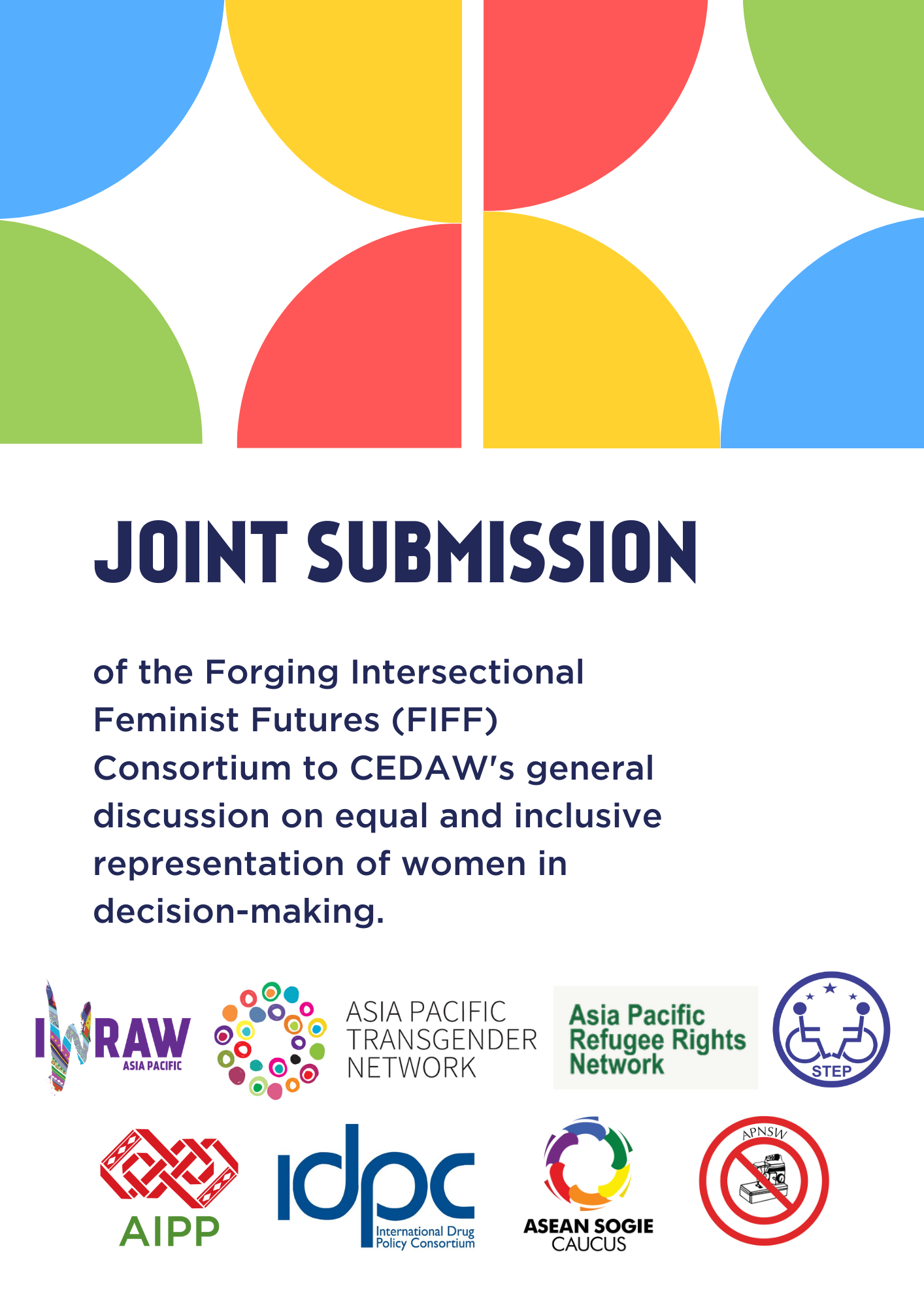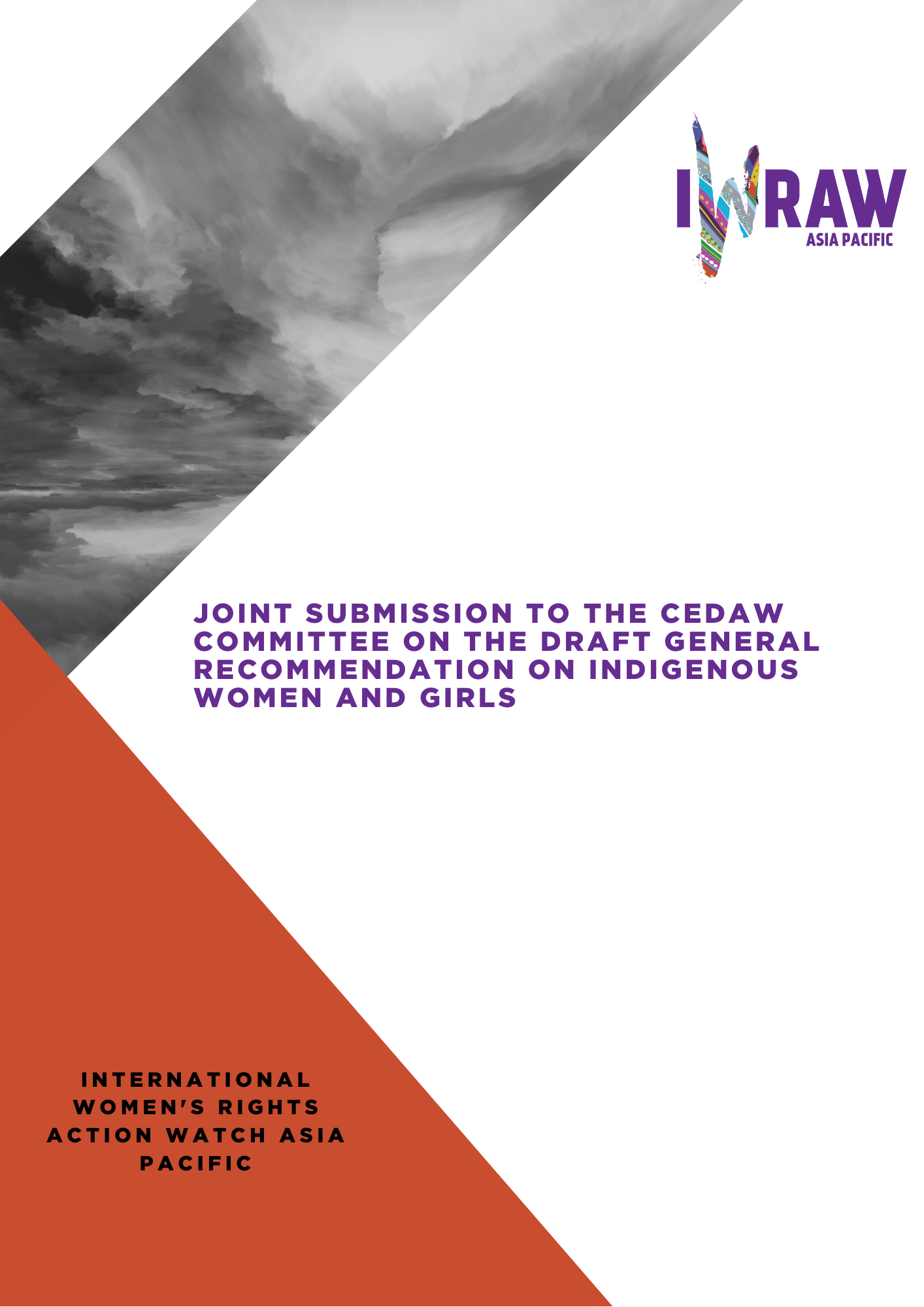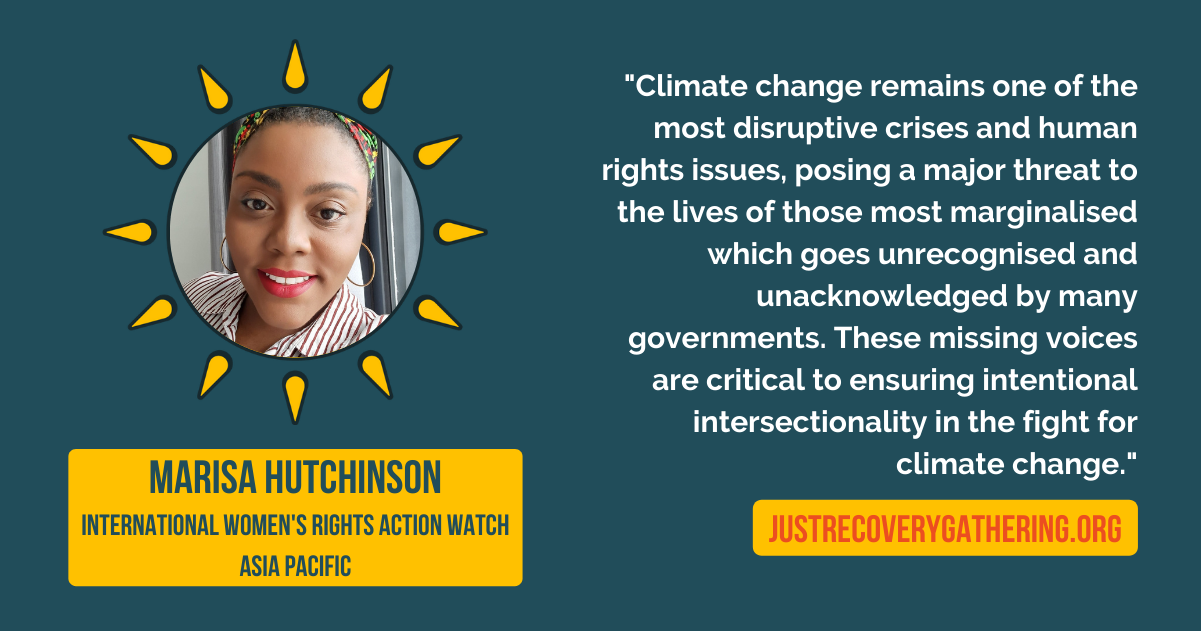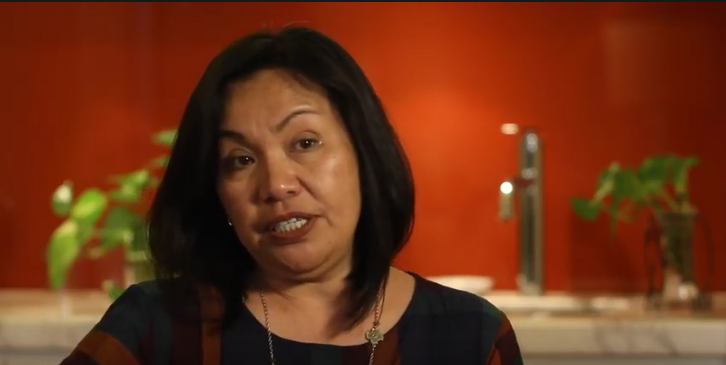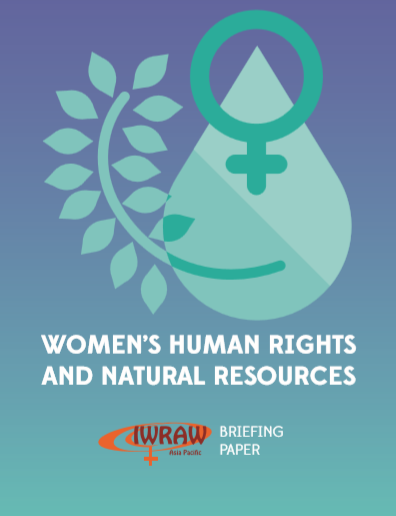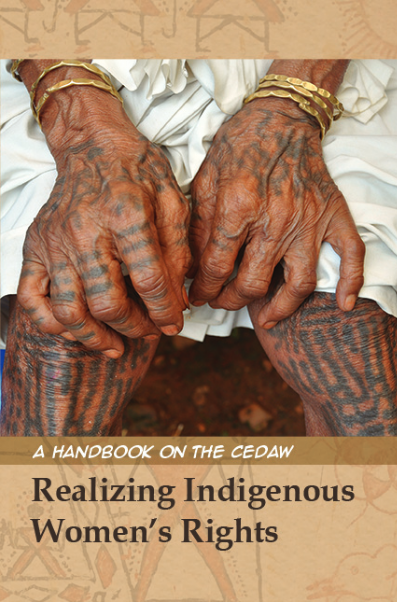Joint submission of the FIFF Consortium to CEDAW’s general discussion on equal and inclusive representation of women in decision-making
February 2023
This joint submission to the CEDAW Committee for their general discussion on equal and inclusive representation of women in decision-making was prepared by the Forging Intersectional Feminist Futures (FIFF) consortium. The joint submission aims to highlight the multidimensional barriers that marginalised groups of women face in their access to equal and inclusive representation in decision-making […]
Read MoreJoint Submission on the Draft General Recommendation on Indigenous Women and Girls
June 2021
This joint submission to the CEDAW Committee was prepared by the Network of Indigenous Women Asia (NIWA) and Asia Indigenous Peoples Pact (AIPP) in consultation with 15 organisations from East Asia, South Asia, Southeast Asia and Mekong region, including IWRAW Asia Pacific. English: PDF | Word
Read MoreIntentional Intersectionality in the Fight against Climate Change
April 2021
Organised by IWRAW Asia Pacific, this session at the Global Just Recovery Gathering invited participants to analyse and document the impacts of climate change on their multiple lived realities and work collectively to find ways these can be mitigated through an intentionally intersectional approach. The session is also intended to contribute to filling the knowledge […]
Read More“Extractive Industries Come with a Very Extractive Mindset”: Eleanor Dictaan-Bang-oa
March 2021
Indigenous women’s struggle stands at the intersection of land rights and women’s rights. Eleanor Dictaan-Bang-oa of the Gender Desk of the Tebtebba Foundation discusses the different kinds of challenges faced by indigenous women, with examples from Nepal, India, and the Philippines. Funded through the Bretton Woods Project’s Gender Equality and Macroeconomics project. Subtitles were kindly […]
Read MoreBriefing Paper – Women’s Human Rights and Natural Resources
2017
16-page PDF which aims to unpack the gender dimension of natural resource exploitation and focuses on key issues concerning women’s rights to natural resources in the ASEAN context. It also provides analysis of women’s rights to natural resources from the CEDAW and ICESCR perspective.
Read MoreRealizing Indigenous Women’s Rights: A Handbook on the CEDAW
2013
In its 238 pages, this handbook by Eleanor Dictaan-Bang-oa and Helen Tugendhat outlines the situation of indigenous women in Asia, explains basic human rights principles and how to use CEDAW, and compiles General Recommendations and Concluding Observations relevant to the rights of indigenous women. Published by Asian Indigenous Women’s Network, Forest Peoples Programme and Tebtebba.
Read More

